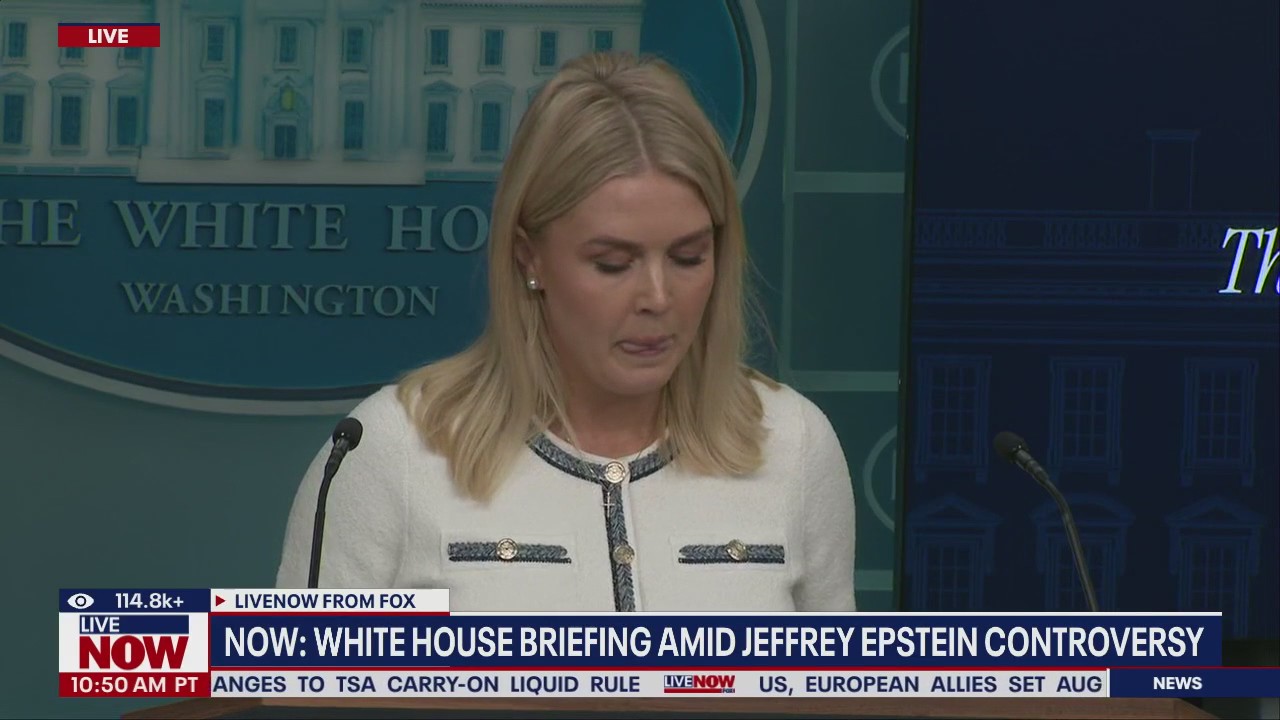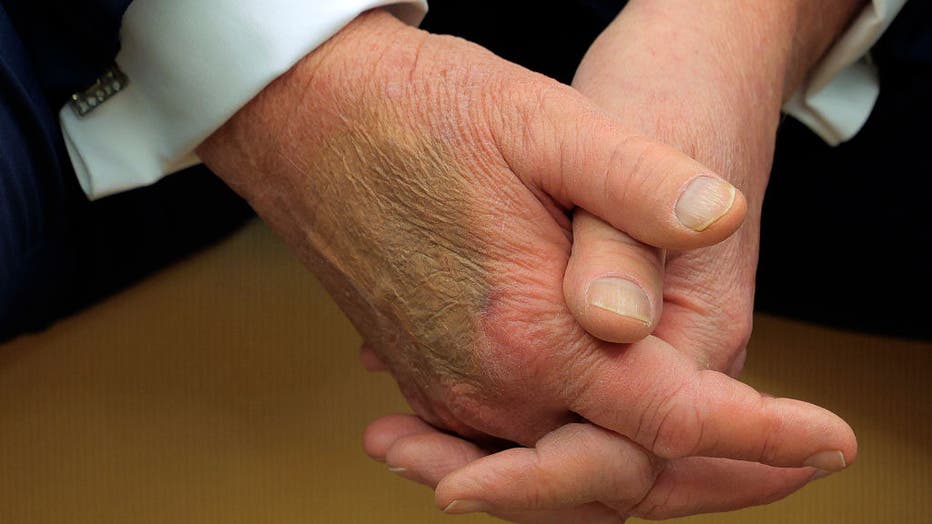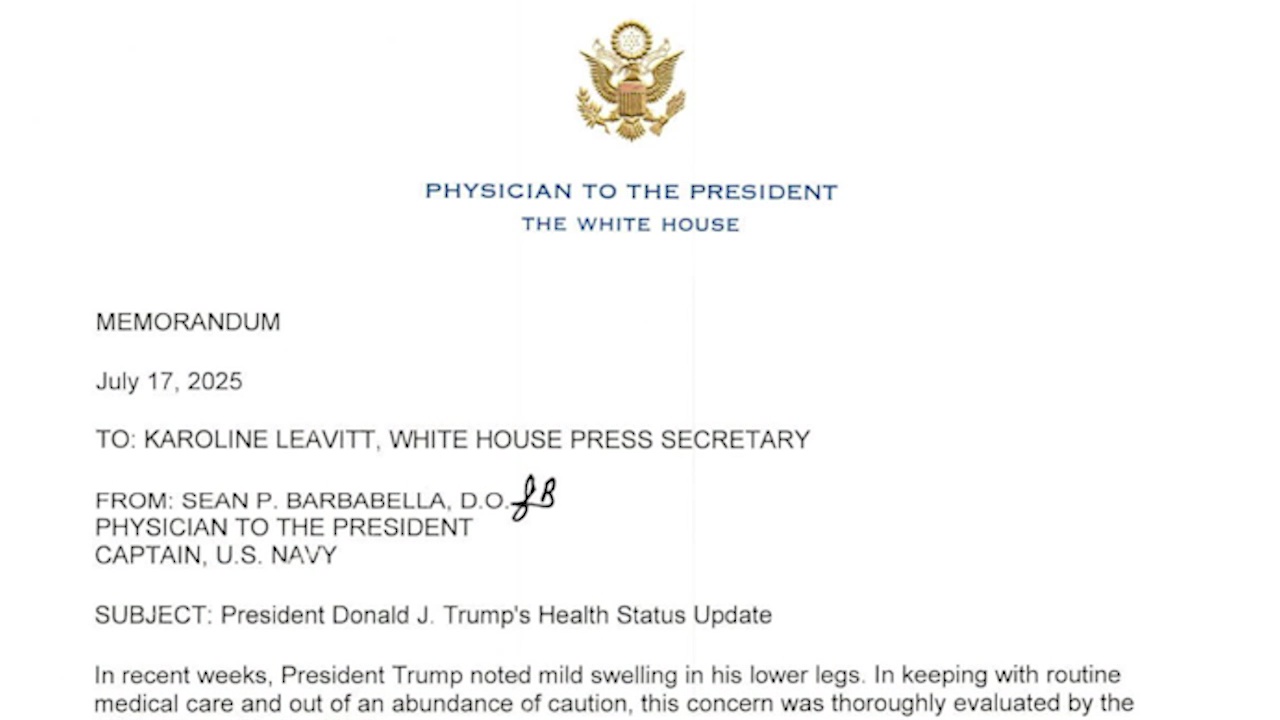What is chronic venous insufficiency? President Trump diagnosed with common condition

Leavitt details Trump’s health evaluation
White House Press Secretary Karoline Leavitt addressed a range of topics during a briefing, including President Trump’s economic record, immigration enforcement, and proposed cuts to foreign aid and public broadcasting. She also disclosed that the president has been evaluated for leg swelling and bruising, and was diagnosed with chronic venous insufficiency, a common condition in older adults, but remains in overall good health.
President Trump has been diagnosed with chronic venous insufficiency (CVI), a circulatory condition that affects blood flow in the legs, the White House revealed Thursday.
Press secretary Karoline Leavitt said the president noticed "mild swelling in his lower legs" in recent weeks and underwent a comprehensive medical evaluation. Testing included vascular studies and a bilateral venous Doppler ultrasound, which confirmed the diagnosis.
While the news sparked fresh speculation about Trump’s health—especially ahead of a high-stakes election season—Leavitt emphasized that the findings showed no signs of heart failure, deep vein thrombosis, or other serious systemic conditions.

U.S. President Donald Trump speaks to reporters at the White House in Washington, D.C., the United States, on July 15, 2025. (Photo by Hu Yousong/Xinhua via Getty Images)
What is chronic venous insufficiency?
The backstory:
Chronic venous insufficiency is a common condition in people over 50, especially those with a history of varicose veins or blood clots. It occurs when veins in the legs are damaged and struggle to return blood to the heart. That leads to pooling, pressure, and symptoms like swelling, skin changes, and even ulcers.
The diagnosis followed online speculation about bruising visible on Trump’s hands in recent public appearances. Leavitt said the bruising is minor and consistent with "soft tissue irritation from frequent handshaking and the use of aspirin," which Trump takes as part of a preventative heart regimen.

Bruising on President Trump’s hands, shown here, was addressed by the White House alongside his diagnosis of chronic venous insufficiency. Officials said the marks are consistent with aspirin use and frequent handshaking, and not related to any serio (Getty Images. )
What we know:
The diagnosis is not considered life-threatening but may require ongoing management, such as compression therapy, leg elevation, and exercise.
- Trump, 79, was diagnosed after reporting swelling in his legs.
- Tests ruled out deep vein thrombosis and confirmed normal heart function.
- CVI is common in older adults and manageable with lifestyle changes or treatment.
What we don't know:
Without specifics on his treatment plan, it’s hard to assess how CVI might affect Trump’s stamina during public events or long flights.
- The White House did not disclose how Trump will be treated or whether the condition will impact his travel or campaign schedule.
- It’s unclear how long Trump has experienced symptoms or if there’s a history of venous disease.

Letter from Trump's doctor details condition
The president is in excellent health, according to his physician, aside from a very common and benign malady.
Why you should care:
Chronic venous insufficiency affects around 1 in 20 U.S. adults and can lead to long-term discomfort or complications if not treated. While the condition itself isn’t considered dangerous, it can worsen over time if left unmanaged—especially in older individuals with a demanding schedule like the president.
Public disclosure of the diagnosis reflects growing attention to transparency around the health of presidential candidates, particularly as age becomes a major factor in the 2024 campaign cycle.
The Source: This article is based on official remarks by White House press secretary Karoline Leavitt, who publicly read a physician’s note during a July 17 press briefing. Additional context about chronic venous insufficiency was drawn from clinical guidance published by the Cleveland Clinic, a nonprofit medical center known for cardiovascular expertise.

